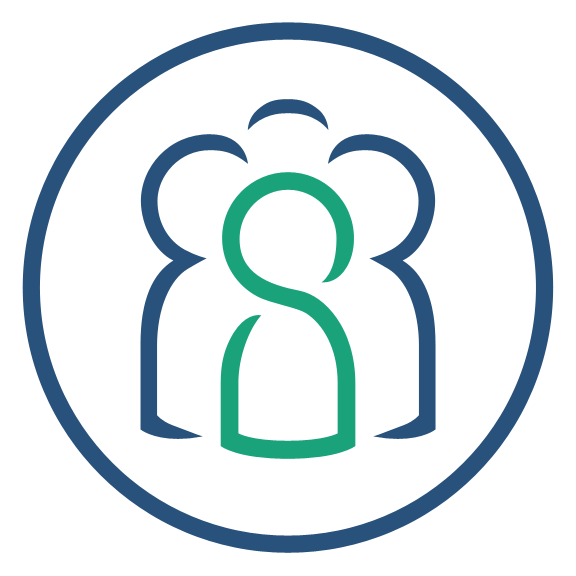The education-to-employment pipeline is fundamentally broken, but we're seeing powerful results with a new approach to bridge the gap. With 40% of graduates underemployed in their first job and 60% of employers reporting that graduates lack essential, durable skills, we're seeing a widening gap that impacts everyone. Additionally, 61% of U.S. job postings in the last two years requested at least one durable skill (Deloitte, 2025), yet too few candidates possess them. In a recent webinar, Mentor Collective's CEO Erin Mayhood showcased a groundbreaking solution called mentor-led recruiting, which is already revolutionizing talent pipelines and setting the new standard for onboarding and engagement.
The Reality: A Crisis of Connection and Confidence
The webinar opened with eye-opening data that reveals the scope of this challenge. Skills mismatch is projected to cost the U.S. economy $1.2 trillion over the next decade, while 83% of HR leaders struggled to fill entry-level roles last year, despite applications being at an all-time high (Avenica). This isn't just about filling positions—it's about the fundamental disconnect between what education provides and what employers need.
The root causes are clear and interconnected:
- Training Lags Tech Disruption - Curriculum cannot keep pace with AI and automation reshaping work.
- Skills Inflation is Choking Opportunity - Entry-level jobs demand inflated experience and credentials.
- Lost Layers Create Lost Learning - Shrinking middle management means fewer on-the-job mentors.
AI can't replace empathy, adaptability, leadership, or collaboration. These abilities are the new currency — mentorship scales them

As Mayhood emphasized, "70-80% of jobs are filled via connections, leaving those without networks behind." This creates what she calls a structural barrier—not just missed opportunities, but systemic exclusion from pathways to meaningful work.
The Solution: Mentor-Led Recruiting as Infrastructure
Mentor-led recruiting isn't just another program—it's a strategic approach that embeds mentorship directly into how organizations find, develop, and retain talent. Rather than waiting for applications, organizations establish structured relationships that connect their people with future talent through internships, apprenticeships, alumni networks, and project-based learning opportunities.
Outcomes from our Partners:
Case Study 1: University of Wisconsin-Green Bay
Challenge: First-generation students struggled to picture themselves in careers despite having academic ability.
Solution: Students were paired with alumni and professional mentors in a structured program.
Results University of Wisconsin Green Bay Impact Report 2023-2024:
- 30.6% improvement in career decision confidence.
- 20.2% improvement in sense of belonging.
- 7.8% improvement in academic self-efficacy.
-
9.4% improvement in academic help seeking.
Case Study 2: Fortune 500 Company Internship Program
Challenge: A well-organized internship program experienced low conversion rates to full-time positions.
Solution: Interns were paired with an employee mentor for culture navigation and career guidance.
Results:
-
42% increase in intern-to-full-time conversion.
-
86% of interns cited mentorship as the primary factor in accepting job offers.
Case Study 3: Oak Ridge National Laboratory
Challenge: Siloed research teams are slowing innovation progress.
Solution: Senior scientists were paired with junior researchers in cross-functional 'innovation pods'.
Results:
-
28% increase in patent filings.
-
4-month reduction in time-to-breakthrough.
Case Study 4: Moreland University Teacher Pipeline
Challenge: Teacher shortages and high attrition threaten district stability.
Solution: An integrated certification and mentorship pathway was created to support teachers from training through early career success.
Results:
- 50% better retention versus national averages.
- $20,000+ turnover savings per teacher for districts.
Mentorship is not just one-on-one. Mentorship is actually a network. And it generates insights at scale.

Three Steps You Can Take Today
The webinar outlined actionable strategies for organizations ready to build mentor-led recruiting into their infrastructure:
1. Embed Mentors in Recruiting Touchpoints
For employers, this means having employees mentor interns, candidates, and new hires. For educators, it involves tapping alumni and local professionals to guide students before they enter the job market.
2. Build Durable Skills Before Day One
Use mentorship to develop adaptability, professionalism, and confidence before students graduate or employees start their roles.
3. Unlock the Multiplier Effect Through Data
Structured mentorship creates signals of belonging, growth, and readiness that can flow directly to student success leaders, advisors, talent acquisition teams, and HR departments.
Building Impact Across Education, Workforce, and Society
This approach delivers measurable outcomes across the board:
For Educational Institutions: Higher retention and completion rates, with data showing stronger career decision self-efficacy and sense of belonging among students who participate in mentorship programs.
For Employers: Access to day-one ready talent with the durable skills that AI cannot replace, plus improved retention rates and stronger internal leadership development.
For Society: More equitable access to opportunity and the social capital that drives career success, addressing the structural barriers that limit potential.
What's Next?
The webinar concluded with a challenge: don't leave this idea on a deck slide. Whether it's bringing alumni into career services, pairing interns with mentors, or partnering with local organizations, the cost of inaction is already appearing on balance sheets through turnover, dropout, and underemployment.
...the cost of inaction is already appearing on balance sheets through turnover, dropout, and underemployment.
Resources and Next Steps
The evidence is clear: in an age where AI is reshaping work, human connection and mentorship aren't just nice-to-have programs—they're essential infrastructure for building sustainable talent pipelines that benefit everyone involved.
As Mayhood emphasized, "The future of talent pipelines is mentor-led. The only question is, will you be part of it?"
To watch the webinar recording, click here. Mentor Collective is also hosting a follow-up webinar on October 8th, introducing "Conversation Sparks," their new AI-powered feature designed to enhance mentorship conversations. Register here!
For more information about implementing mentor-led recruiting strategies, reach out to request a consultation or attend the upcoming "Conversation Sparks" webinar on October 8th at 2pm EST.
